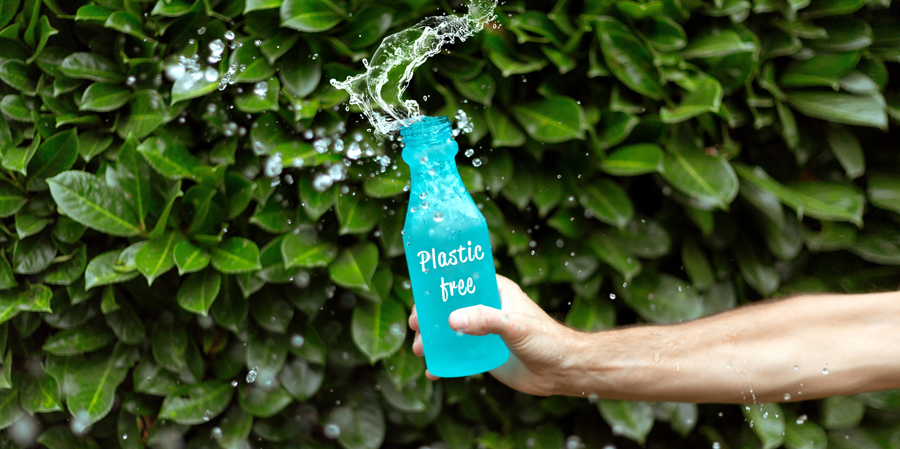As demand for better brands continues to increase, we can expect an exponential increase in two things: ‘green’ brand claims and the level of public scrutiny. Before your brand team loses time, money and precious brand equity, check out this summary of resources to help you stay the course.
Brands all too often bombard consumers with claims that imply their products are sustainable. The coffee cup with a green leaf says “Compostable!” but fails to mention it will only compost under specific and rare conditions. Your favorite coffee shop eliminating plastic straws in favor of a lid is actually using more plastic. And your favorite plant-based milk inflates its greenhouse gas credentials over dairy alternatives.
Consumers are . . . confused, and with good cause. 66 percent of consumers tell us it’s hard to know if brands are acting in sustainable ways. And a study by the UK’s Competitions and Markets Authority (CMA) found up to 40 percent of green claims found online are misleading.
As consumer demand for purpose-led brands increases year after year, you can expect an exponential increase in two things: the volume of ‘green’ brand claims and the level of public scrutiny.
In the UK, the Advertising Standards Authority is challenging brands on green claims; even sustainable brand faves such as Oatly and Innocent are being called out for their inability to substantiate green claims with data to back up environmental assertions. The end result? Pulling ad campaigns.
In the US, California recently passed legislation that puts more scrutiny on environmental claims — and more specifically, restricts recyclability claims for packaging by 2024. This new law cracks down on use of the recycling symbol or compostability claims on packaging where state recycling infrastructure does not exist. Because of the size of the California consumer market, these new rules will become the new standard for the US — which means that aforementioned coffee cup will need to drop the claim on compostability or prove through certification that facilities exist to compost it.
Before your brand team loses time, money and precious brand equity, check out this summary of resources to help you stay the course.
Green claims guides
As governments around the world crack down on greenwashing claims, we have found the following guides on environmental claims helpful as we guide our own client brands in making fair and legal claims.
- UK CMA The UK government’s green guides — updated in 2021 — cover key principles and give examples of sample cases.
- FTC Green Guides The US Federal Trade Commission (FTC) has a Green Claims Guides for US businesses. It updated the latest version in 2021 and will review again this year.
Packaging claims
Consumers say recycling is consistently one of the top sustainable behaviors they engage in regularly, which stands to reason as it’s a problem we all face in our daily lives. The overriding principle for recycling claims is this: Make them clear and true. If your packaging says it’s recyclable, biodegradable or compostable, there should be a high probability that it can and is being recycled.
A good resource for developing both more sustainable packaging and accurate packaging claims is the Sustainable Packaging Coalition. Check the resource section for a range of guides on everything from more recycled content to recycling facilities mapped across the US.
Net-zero claims
Claims of ambitions to get to zero emissions by 2030, 2040 or 2050 have exploded in recent years. As we sit in the midst of a climate emergency, this is exactly what is needed. But not all claims are created equal. Many net-zero claims are vague on details as to how exactly a company plans to get to zero emissions — whether that’s through reduction in emissions or a reliance on carbon offsets.
Get Net Zero Right is a toolkit from the UN’s Race to Zero program for how to set credible commitments. Key principles include whether the company is already taking action on near-term targets, transparency on progress and the role offsets play in delivery of the goal.
Reputation + trust
Ultimately, building brand loyalty and love is about trust. And it’s hard to trust someone who plays fast and loose with the facts or fails to back up their statements with proof. Today’s marketers walk a fine line between snappy copy, good design and sustainable credentials. In the Purpose Advantage 2.0, we devote an entire chapter to how to tell your brand story in an authentic, transparent way — because in today’s market, your reputation is everything.
As Warren Buffett said, “It takes 20 years to build a reputation and five minutes to ruin it.”
—
This article first appeared in www.sustainablebrands.com
Seeking to build and grow your brand using the force of consumer insight, strategic foresight, creative disruption and technology prowess? Talk to us at +971 50 6254340 or engage@groupisd.com or visit www.groupisd.com/story




